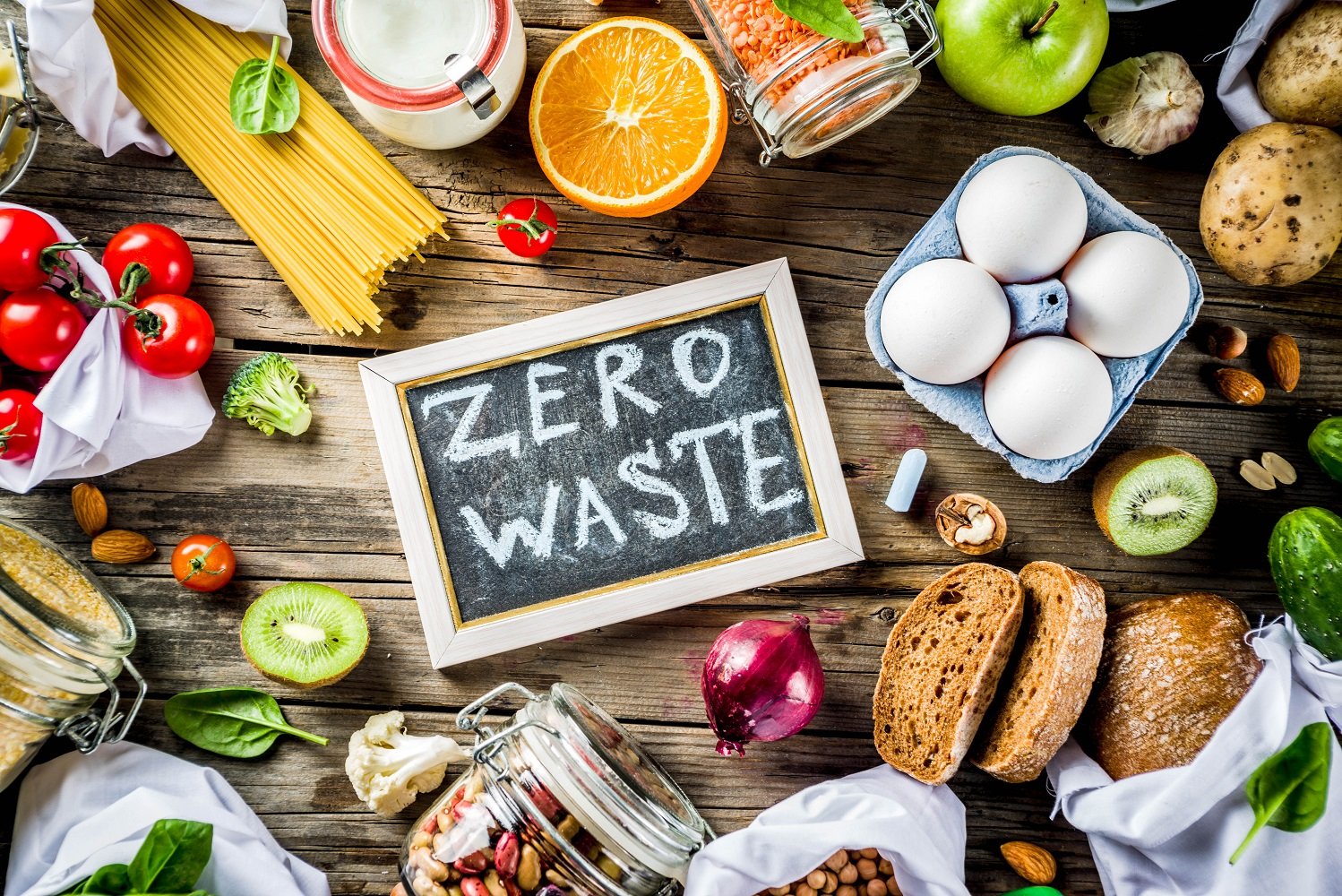
Less Meat Monday
Why it’s important:
Some foods in our modern food systems cause more greenhouse gas emissions than others. Even small shifts in what you eat can have a big impact on your personal health and planetary health. Cutting down on our food waste is also critical for reducing greenhouse gas emissions.

Action Options:
Food production is responsible for one quarter of the world’s greenhouse gas emissions. How could you lower the greenhouse gas footprint or “foodprint” of what you eat today and in the future?
Take a minute to check out this chart of the carbon footprint of the food supply chain. Chart
The resource section below suggests other strategies for shifting your diet emissions, for example Johnathan Foer suggests going meatless for breakfast and lunch.
Four strategies for reducing food waste.
(a) Plan ahead to reduce your food waste.
(b) Compost what food waste you do have either at home or by using a local service like Midtown Composting.
(c) Get “massive” savings on food almost at the “Best by” date using the Flashfood app.
(d) Check out the local organization, Make Food Not Waste.
-
Here’s their mission: Our mission is to keep food out of landfills and slow climate change by creating lasting solutions to food waste through education, food up-cycling and advocacy.
3. Learn about the many benefits of healthy soil. Watch Kiss the Ground, available on Netflix, or read the guide, Regenerative Agriculture 101
Published by the Natural Resources Defense Council.
Why is decreasing food waste so important? Lowering food waste cuts down on the energy and land and water used in producing that food. According to the USDA “food waste is estimated at between 30-40 percent of the food supply.” In fact, food is the single largest category of waste put in municipal landfills. In the U.S. 43% of that food waste comes from households. In addition to the waste of energy in production mentioned above, as food in landfills decomposes it emits the greenhouse gas, methane. Learn more about the impact of methane below.
“Swapping just one meat dish for a plant-based one saves greenhouse gas emissions that are equivalent to the energy used to charge your phone for two years.” Christian Science Monitor 3/7/22
“If everyone in the U.S. ate no meat or cheese just one day a week, it would have the same environmental impact as taking 7.6 million cars off the road.” Stanford 5/6/21

Bright Spots
Read about how Detroit’s Avalon Bakery is upcycling spent brewer’s grains to produce gourmet crisps.
Avalon Bakery located on Willis in Detroit's Cass Corridor neighborhood. Photo by rosa Maria Zamarron
Farmers In India are creating health soil with natural farming methods
A farmer walks through sweet lime trees planted as part of a natural farming initiative over 100 acres at Appilepalli village in Anantapur district. - Copyright AP Photo/Rafiq Maqbool
Resources:
Resources:
These are just a few of the many great resources available these days.
Reduce Your Food Waste - EPA multiple strategies for reducing your food waste.
Quick cooking videos from the UN’s ActNow sustainable food and gastronomy challenge https://www.un.org/sustainabledevelopment/actnow-climate-campaign-videos/
Ted Talk by Graham Hill Why I'm a Weekday Vegetarian.
Meat substitute products do have a much lower fossil fuel footprint. On the other hand, they are highly processed and therefore may not be your only answer shifting away from meat. Try this recipe for sausage and peppers with plant-based sausage.
We Are The Weather, Saving the Planet Begins at Breakfast, book by Jonathan Safran Foer.
The Game Changers (2018) documentary about veganism & athletes.
Kiss the Ground (2020) documentary about soil depletion and regenerative agriculture.
Website: Kiss the Ground
Article from Stanford Earth Matters Magazine one of many good articles available.
Make Food Not Waste https://makefoodnotwaste.org/
Midtown Composting https://midtowncomposting.com/
Flashfood App https://www.flashfood.com/
15 Organizations Creating Healthier Soil to Save the Planet
https://foodtank.com/news/2019/12/15-organizations-creating-healthier-soil-to-save-the-planet/
* About methane “Methane is the second most abundant human made greenhouse gas after carbon dioxide (CO2), accounting for about 20 percent of global emissions. Methane is more than 25 times as potent as carbon dioxide at trapping heat in the atmosphere. Over the last two centuries, methane concentrations in the atmosphere have more than doubled, largely due to human-related activities. Because methane is both a powerful greenhouse gas and short-lived compared to carbon dioxide, achieving significant reductions would have a rapid and significant effect on atmospheric warming potential.” United States EPA.
https://www.epa.gov/gmi/importance-methane
Methane or Carbon Dioxide? We need to do it all.




